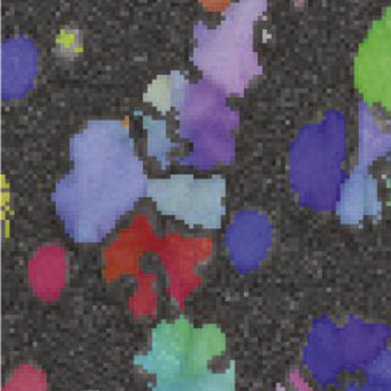Article contents
Sputter-deposited magneto-optical garnet for all-mode (transverse electric/transverse magnetic) Faraday rotators
Published online by Cambridge University Press: 11 June 2018
Abstract

Faraday rotators in optical isolators, typically composed of iron garnets, are photonic analogues of electrical diodes in that they do not allow reciprocal transmission of light. Isolators are especially important for blocking back-reflected light from reaching source lasers, as such feedback gives rise to unwanted noise and instabilities. In commonly implemented photonic integrated circuits (PICs), isolation is the only critical function that cannot yet be achieved by direct integration. While several techniques have been explored for integrating high-gyrotropy garnets into silicon-on-insulator PICs, this article focuses on sputter deposition, which is the most up-scalable process. High-gyrotropy Ce-doped yttrium iron garnet on nongarnet substrates can be made by sputter deposition with the use of garnet seed layers. Because these seed layers can compromise device performance, seed layer-free terbium iron garnet (TIG) has also recently been developed. Careful doping of TIG can produce Faraday rotations with opposite chiralities, which enable new device designs. Most optical isolator designs involve two-dimensional transverse magnetic-mode structures, such as interferometers or ring resonators, which employ nonreciprocal phase shift. One-dimensional Faraday rotation waveguides with quasi-phase matching have been shown to enable direct integration of isolators for all modes, including the transverse electric mode of lasers currently available for fully integrated PICs.
- Type
- Materials for Nonreciprocal Photonics
- Information
- MRS Bulletin , Volume 43 , Issue 6: Materials for Nonreciprocal Photonics , June 2018 , pp. 430 - 435
- Copyright
- Copyright © Materials Research Society 2018
References
- 10
- Cited by


